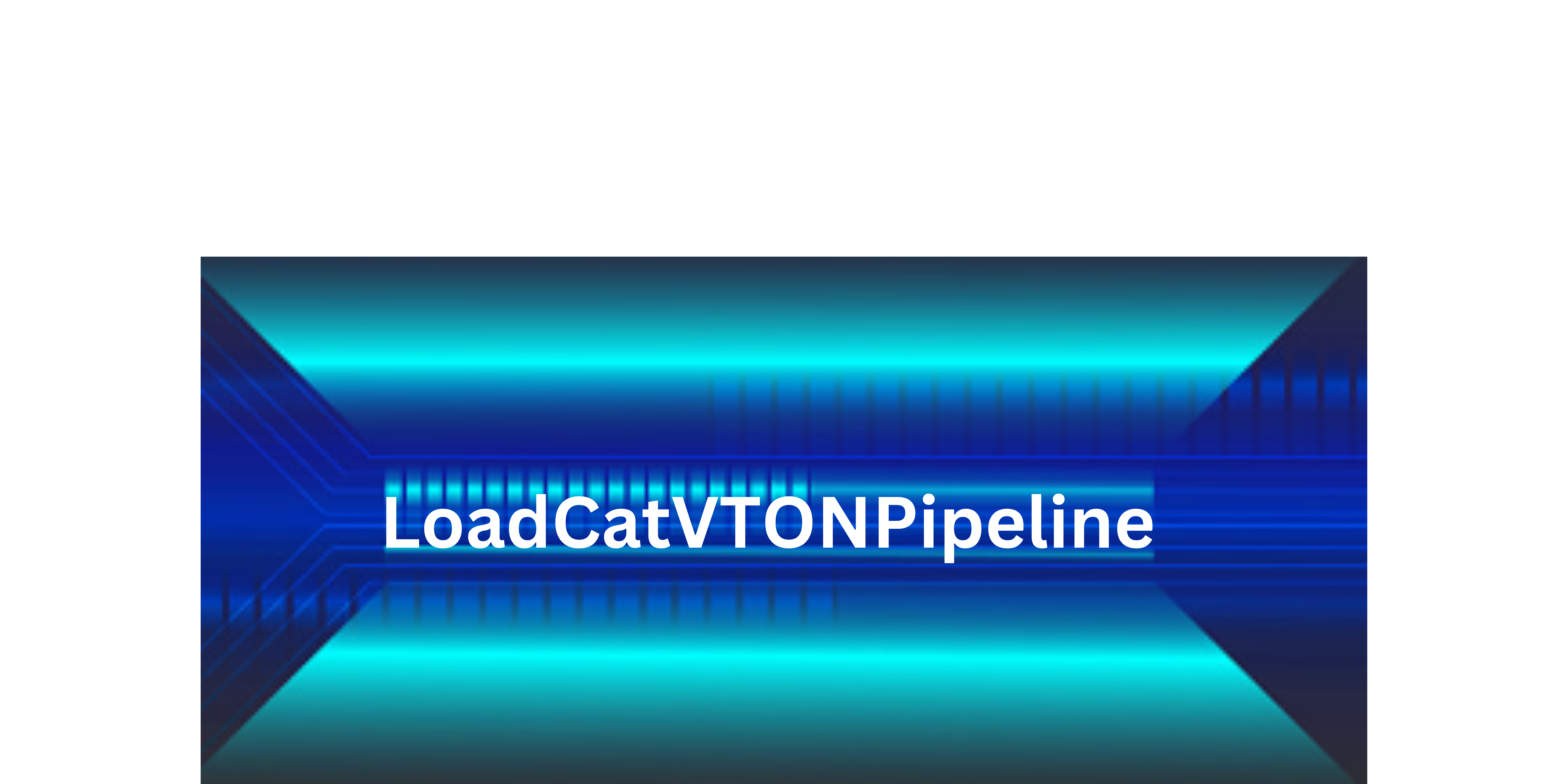1. Introduction
In the world of digital pipelines and automated workflows, LoadCatVTONPipeline stands out as a critical tool for managing processes in virtual environments. If you’re in the USA and working in fields like computer graphics, visual effects, or software development, understanding this pipeline’s intricacies can be transformative for your projects.
This article explores LoadCatVTONPipeline comprehensively, offering insights beyond the basics while optimizing for search engines to ensure accessibility for professionals and enthusiasts alike.
2. What is LoadCatVTONPipeline?
LoadCatVTONPipeline is a sophisticated framework designed for managing virtual try-on technology (VTON) workflows. It’s integral to automating tasks like clothing simulation, virtual dressing, and user interaction modeling. This pipeline typically incorporates CatVTON AutoMasker Nodes, a system essential for handling virtual clothing assets and ensuring seamless transitions between various operational stages.
Nodes within the LoadCatVTONPipeline are interconnected units that execute specific tasks, such as loading assets, applying textures, or simulating cloth dynamics. When nodes fail to load, they appear red on the graph, signaling an issue requiring immediate attention.
3. Core Components of LoadCatVTONPipeline
To grasp LoadCatVTONPipeline’s functionality, it’s essential to understand its core components:
1. CatVTON AutoMasker Nodes
- These nodes automate masking processes, ensuring that only relevant areas of a virtual model interact with clothing assets. They play a vital role in reducing manual labor and enhancing precision.
2. Graphical Node Interface
- The pipeline operates through a graphical node interface, allowing users to connect and configure nodes visually. This interface provides an intuitive way to manage complex workflows.
3. Error Signaling Mechanism
- Nodes failing to load are highlighted in red, providing a visual cue to identify and rectify issues quickly.
4. Asset Loader
- The asset loader ensures all virtual clothing files and textures are accessible and correctly linked to the pipeline.
4. Why LoadCatVTONPipeline is Essential for Professionals
1. Streamlined Workflow
LoadCatVTONPipeline reduces the complexity of handling virtual clothing assets, enabling a streamlined workflow for designers and developers.
2. Error Detection and Resolution
The red-highlighted nodes make error detection straightforward, saving time during debugging and asset preparation.
3. Scalability
This pipeline is scalable, making it suitable for projects of varying sizes, from small virtual try-on applications to large-scale e-commerce integrations.
4. Enhanced User Experience
By automating repetitive tasks, the pipeline allows professionals to focus on creativity and innovation, resulting in a superior end-user experience.
5. Common Challenges and Solutions
Challenge 1: Nodes Failing to Load
Nodes in LoadCatVTONPipeline may fail to load due to missing files, incorrect configurations, or corrupted assets. These nodes turn red, signaling an issue.
Solution:
- Verify the asset’s file path.
- Recheck node configurations to ensure proper connections.
- Replace or repair corrupted files.
Challenge 2: Slow Pipeline Performance
Performance issues often arise from handling large datasets or unoptimized workflows.
Solution:
- Optimize assets by reducing file sizes and unnecessary details.
- Increase hardware resources such as RAM and GPU.
Challenge 3: Incompatible File Formats
The pipeline may encounter errors when processing unsupported file formats.
Solution:
- Convert all assets to compatible formats before loading them into the pipeline.
6. Best Practices for Optimizing LoadCatVTONPipeline
1. Regular Updates
Keep the pipeline and its components updated to benefit from the latest features and bug fixes.
2. Asset Management
Organize your assets systematically. Use descriptive naming conventions and structured folder hierarchies.
3. Documentation
Maintain detailed documentation of your pipeline configurations and troubleshooting steps to facilitate team collaboration and reduce downtime.
4. Testing Environment
Test your pipeline in a controlled environment before deploying it in production. This practice minimizes risks and ensures smooth operations.
7. Use Cases of LoadCatVTONPipeline
1. E-Commerce
Retailers use LoadCatVTONPipeline to power virtual try-on features, enabling customers to visualize products before purchase.
2. Fashion Design
Designers simulate clothing prototypes in virtual environments, saving time and material costs.
3. Gaming and AR/VR
The pipeline integrates seamlessly with gaming and AR/VR applications, enhancing realism in character customization and interactions.
8. Frequently Asked Questions (FAQs)
1. What does it mean when nodes in LoadCatVTONPipeline turn red?
When nodes turn red, it indicates they have failed to load. This could be due to missing files, incorrect configurations, or corrupted assets.
2. How can I optimize performance in LoadCatVTONPipeline?
You can optimize performance by reducing asset file sizes, increasing hardware resources, and keeping the pipeline’s software updated.
3. Is LoadCatVTONPipeline suitable for small projects?
Yes, the pipeline is scalable and can be adapted to suit projects of varying sizes.
4. Can LoadCatVTONPipeline handle 3D asset formats?
Yes, it supports a range of 3D asset formats. However, ensure that all assets are converted to compatible formats before loading them.
5. What industries benefit most from LoadCatVTONPipeline?
Industries such as e-commerce, fashion design, gaming, and AR/VR benefit significantly from this pipeline.
9. Conclusion
LoadCatVTONPipeline is an indispensable tool for professionals handling virtual try-on workflows. By automating complex tasks and providing robust error detection mechanisms, it enhances productivity and ensures project success.
Whether you’re a developer, designer, or business owner in the USA, mastering this pipeline can give you a competitive edge in your industry. With the insights and practices shared in this article, you’re well-equipped to make the most of LoadCatVTONPipeline in your projects.




